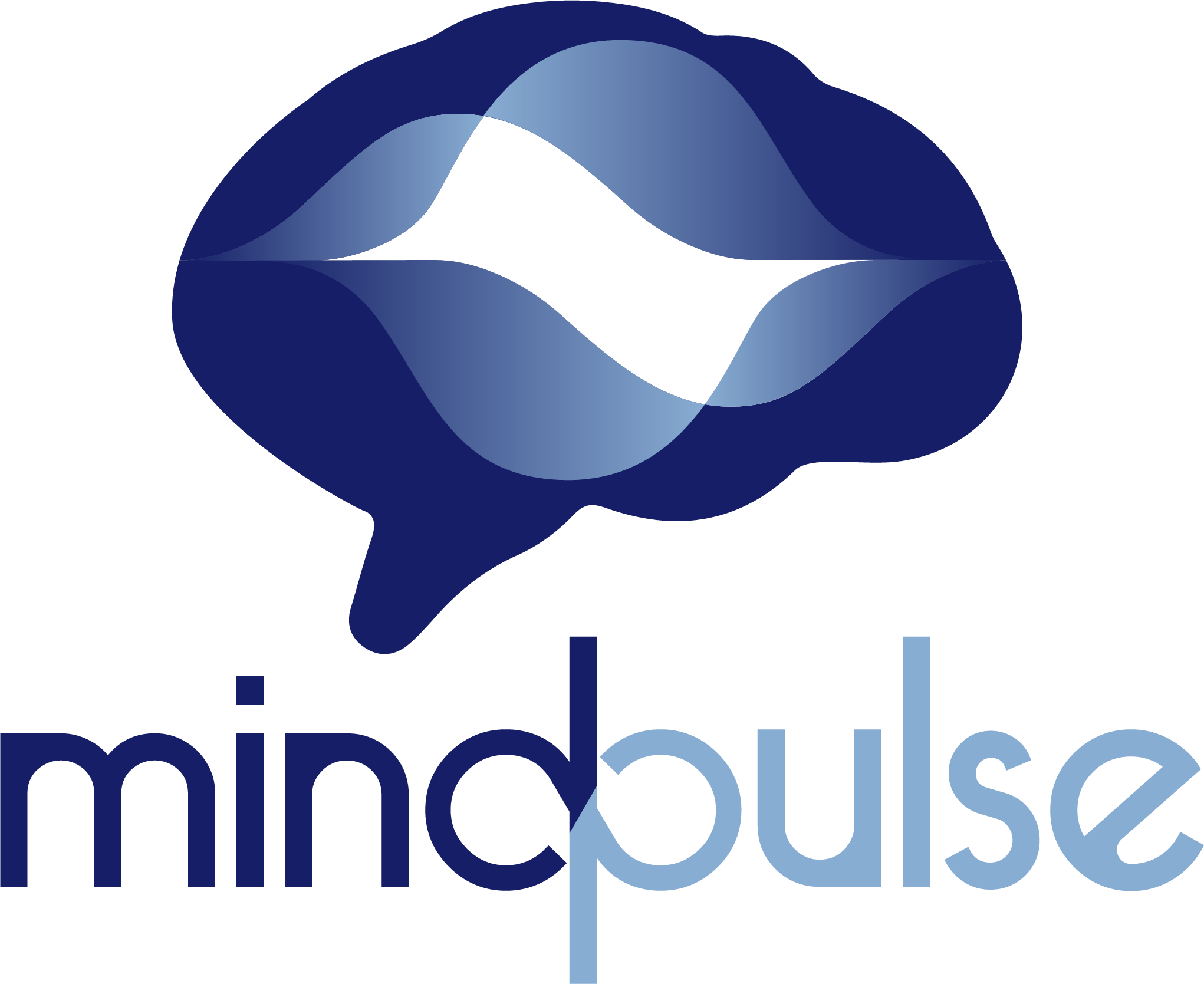The Importance of Decision-Making and Executive Functions: Evaluation in Everyday, Professional, and Medical Life
Executive functions are a set of essential cognitive skills that play a central role in our ability to manage our daily lives, solve complex problems, and succeed in our social and professional interactions. These functions enable us to plan, organize, solve problems, manage our time, and make decisions. These abilities are crucial for success in many aspects of our lives. Among these skills, decision-making holds a central place and provides insight into how we use our executive functions to make informed choices that are adapted to our environment.

In this article, we will delve deep into the importance of decision-making in assessing executive functions, how it influences our daily life, and its significance in a medical-psychological context.
What are "decision-making" and "executive functions"?
To understand why decision-making is so crucial in evaluating executive functions, it is essential to grasp the meaning of these terms.
Executive functions encompass a range of high-level cognitive skills that enable goal-directed actions. They include planning, organization, problem-solving, working memory, attention, mental flexibility, and many other skills. They act as the conductor of our brain, allowing us to perform complex tasks and adapt to changing situations.
Decision-making, on the other hand, is a complex cognitive function that involves choosing one option among several based on available information. It entails analyzing data, assessing potential consequences, considering long-term goals, and considering emotions and personal values. In other words, it engages various components of executive functions, such as mental flexibility, planning, attention, and emotional regulation. Every time we make a decision, we employ a range of executive skills.
In daily life, decision-making abilities are central to professional, personal, and social adaptation. Decision-making plays a role in various aspects, including:

- Time and task management, establishing priorities, and managing our schedule.
- Problem-solving to find solutions based on thoughtful decisions.
- Interpersonal relationships, where emotional regulation and empathy are necessary to determine the best possible response in interactions.
- Professional life, where decision-making is at the core of our ability to work effectively, especially when breaking routines and adapting to changes.
- Career progression, where decision-making is essential for taking on responsibilities and ultimately advancing in one's career.
- Personal balance and quality of life, especially when determining short, medium, and long-term courses of action in daily choices regarding our lifestyle and pace of life.
Therefore, the evaluation of decision-making appears crucial for a better understanding of our functioning. Decision-making provides a powerful means to assess executive functions comprehensively: the daily decisions we make reflect our ability to process information effectively, weigh pros and cons, adjust our behavior accordingly, and maintain long-term goals.
Medical and Psychological Evaluations
Decision-making tests, whether complex, such as problem-solving tasks or role-playing games, or those involving fundamental decision-making processes, such as categorization and Go-NoGo tasks as used in MindPulse, allow clinicians, researchers, and professionals in general to assess executive functions accurately and objectively.
These evaluations can be useful in various fields, including clinical psychology, to understand patients' difficulties, such as in attention-deficit/hyperactivity disorder (ADHD), schizophrenia, or neurodegenerative dementias.
-
-
- Alzheimer's Disease
-
Neurodegenerative research is pioneering in this area, with many studies on Alzheimer's disease highlighting that executive slowing precedes any other symptoms and is present long before the clinical phase of the disease, despite performance remaining within the norm for most traditionally used tools. Han et al.'s study (2017) also raises the need for more sensitive tools and the reevaluation of what is considered "normal," which currently has too wide variations.

-
-
- Attention-Deficit/Hyperactivity Disorder (ADHD)
-
In the realm of ADHD, Kibby et al. (2019) show the possibility of differentiating subtypes of ADHD (inattentive, impulsive, or mixed) by measuring components of processing speed (simple reaction time, perceptual-motor speed, decision-making speed), which appear differently affected. Simple motor reaction time would be the same between children with and without ADHD, but perceptual-motor and decision-making speeds would be slower depending on the nature of ADHD. Conversely, in the "Sluggish Cognitive Tempo" subtype of ADHD, simple motor reaction time would be specifically affected but not its cognitive and executive components. In adults with ADHD, only processing and decision-making speed would be related to the severity of attention deficits, where working memory, despite being an integral part of executive functions and known for its impairments in ADHD, would not be significant when evaluated with traditionally used tools (Weschler's working memory indices; Anker et al. 2021).

-
-
- Schizophrenia
-
In schizophrenia, Thuaire et al. (2022) demonstrate the central role of processing speed in the executive impairments of these patients and the mediating role of processing speed on executive functions in general. The authors emphasize that "fast processing may help to bear in mind current rules for shifting tasks [flexibility], to switch faster between these rules, to update memory faster so that materials are not forgotten [working memory], to inhibit pre- potent responses faster in order to activate an alternative response [inhibition], and to activate and use efficient strategies to access memory.” (Thuaire et al., 2022, p.5).
-
-
- Depression
-
Emotional disturbances, particularly depression, are known for their impact on cognitive functions, especially at the executive and attentional levels. This results in a slowing of processing speed but an improvement in response accuracy. However, antidepressant treatments can alleviate this slowdown and enhance processing speed in patients, but they may also lead to an increase in errors (Kalb et al., 2006). In this dual study, Kalb et al. (2006) explain that this speed-accuracy imbalance phenomenon can also be observed in typical populations, especially during stress responses, where speed is prioritized over accuracy. Furthermore, recent research by MindPulse allows for a more detailed analysis of the origin of the slowdown observed in depressed individuals, distinguishing between the motor and executive components of reaction speed (Raysséguier et al., 2023). These studies reveal a specific and unique correlation between the slowdown, decision-making profile, and depressive symptoms (Raysséguier et al., 2023). These findings underscore the importance of considering the overall balance in decision-making, including various measures of speed, accuracy, and response variability. Alone, these factors do not provide a comprehensive understanding of the global changes that occur in decision-making situations.
Discover the latest research on depression and decision-making conducted in partnership with MindPulse
Evaluation of Difficulties in Everyday and Professional Life
In individuals without pathological conditions, the evaluation of decision-making and executive and attentional functions is equally important and provides insight into daily functioning and the impact of our environment and lifestyle on our abilities. For example, in the context of sleep disorders, our vigilance abilities are impaired (Hudson et al., 2020), which can have consequences on our driving behavior or decision-making abilities due to slowed reaction times. Alcohol, even in low doses, certain medications, or even coffee, can impact the balance of our decision-making by affecting its parameters (intensity or nature of emotional response, disinhibition, selection of the most relevant information, etc.; Koelega, 1995). Evaluating these parameters allows us to better understand our functioning and the influence of our environment, offering an alternative way to consider performance. These evaluations are also used in education to better understand students' needs and adapt teaching methods accordingly.
The importance of decision-making in assessing executive functions also extends to the professional world. Employers increasingly seek to assess these skills in their candidates because they are essential for solving complex problems, managing time, making informed decisions, and collaborating effectively in the workplace. Individuals capable of making sound decisions are more likely to achieve their professional goals and contribute significantly to their teams and organizations.

Conclusion
In summary, decision-making, easily measurable through response time paradigms, plays a crucial role in assessing executive functions. It allows for a comprehensive evaluation of a person's ability to use cognitive skills to make informed and situationally adapted choices. Whether in the field of mental health, education, or work, understanding decision-making is essential for promoting the development of executive functions and improving quality of life. Consequently, it is essential to recognize the importance of this skill in our society and to integrate it more into our assessment and personal development practices.
It is imperative to develop new tools for a more precise assessment of executive functions, with a focus on decision-making. The brand-new MindPulse test, born out of scientific innovation (CNRS/Université Paris-Saclay patent), provides an innovative and promising solution to these critical issues. It demystifies the decision-making process by distinguishing elements related to execution speed from purely cognitive categorization aspects. Furthermore, it enables an understanding of how individuals react based on their perception of task difficulty, in relation to their emotional state.
Explore it now
References
-
-
- Anker, E., Ogrim, G., & Heir, T. (2021). Verbal working memory and processing speed: correlations with the severity of attention deficit and emotional dysregulation in adult ADHD. Journal of Neuropsychology, 16, 211-235.
- Becker, S.P., Marsh, N.P., Holdaway, A.S. & Tamm, L. (2020). Sluggish Cognitive Tempo and processing speed in adolescent with ADHD: do findings vary based on informant and task? Eur Child Adolesc Psychitry, 29(10), 1371-1384.
- Han, S.D., Nguyen, C.P., Stricker, N.H., & Nation, D.A. (2017). Detectable neuropsychological differences in early preclinical Alzheimer’s Disease: a meta-analysis. Rev., 27(4), 305-325.
- Hudson, A.N., Van Dongen, H.P.A., & Honn, K.A. (2020). Sleep deprivations, vigilant attention, and brain function: a review. Neuropsychopharmacology, 45, 21-30.
- Kalb, R., Dörner, M, Kalb, S. (2006). Opposite effects of depression and antidepressants on processing speed and error rate. Progress in Neuro-Psychopharmacology & Biological Psychiatry, 30, 244-250.
- Kibby, M,Y., Vadnais, S.A., & Jagger-Rickels, A. (2019). Which components of processing speed are affected in ADHD subtypes? Child Neuropsychol., 25(7), 964-979.
- Koelega, H.S. (1995). Alcohol and vigilance performance: a review. Psychopharmacology, 118, 233-249.
- Raysséguier, C., Vancappel, A., Suarez, S., & El Hage, W. Dépression Unipolaire : évaluation des difficultés attentionnelles et exécutives et des profils d’adaptation dynamiques à la décision, par un nouveau test et par l’utilisation de l’Intelligence Artificielle, JNPN, Paris (France), 2023.
- Thuaire, F., Rondepierre, F., Vallet, G.T., Jalenques, I., & Izaute, M. (2020). Executive deficits in schizophrenia : mediation by processing speed and its relationships with aging. Psychological Medicine, 1-9.
- Warkentin, S., Erikson, C., & Janciauskiene, S. (2008). rCBF pathology in Alzheimer’s disease is associated with slow processing speed. Neuropsychologia, 46, 1193-1200
-

Charlotte Mennetrey
Article written by
Dr. Charlotte Mennetrey Dr. in Psychology, psychologist specializing in Neuropsychology.
